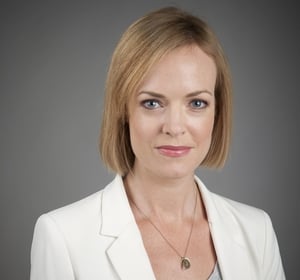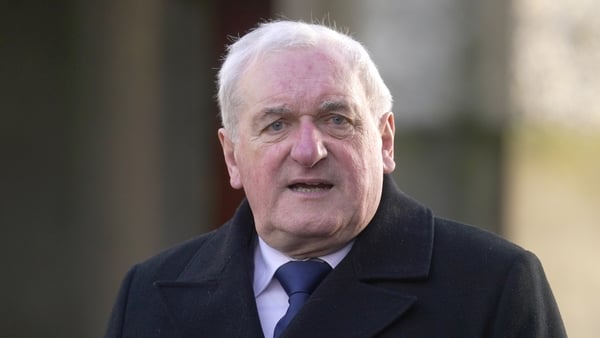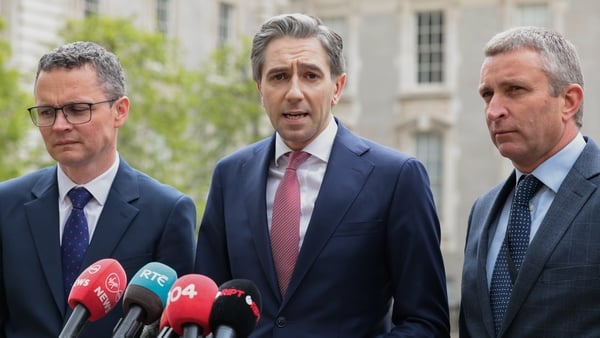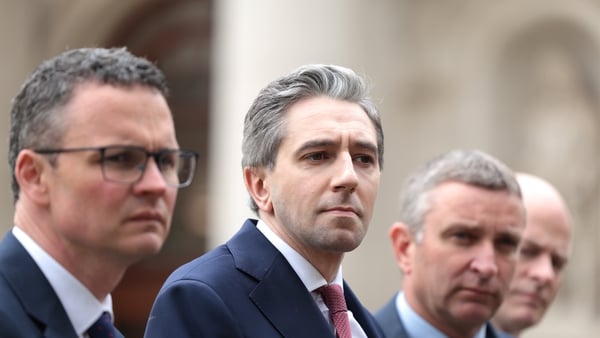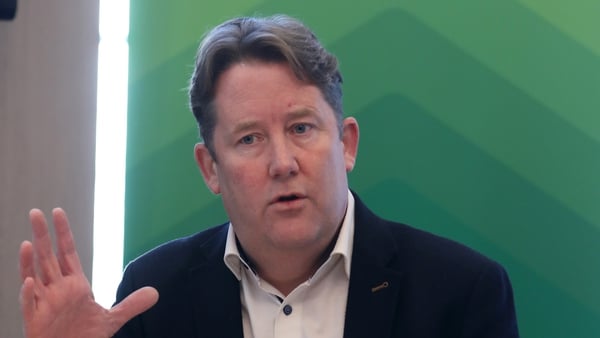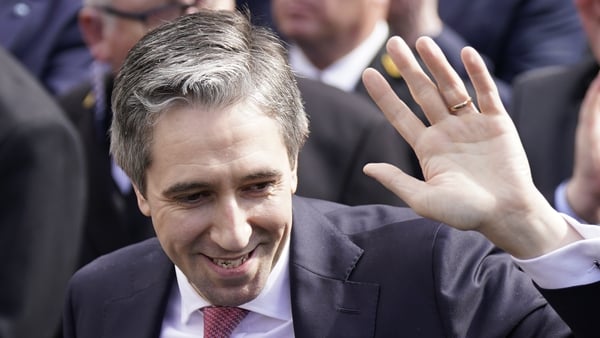Minister for Health Stephen Donnelly has said he wants to raise the age at which people can buy cigarettes and tobacco products from 18 to 21.
Mr Donnelly was at an event marking 20 years since Ireland became the first country in the world to ban smoking indoors.
On 29 March 2004, the ban on smoking in the workplace came into force, most contentiously in bars, hotels and restaurants.
Publicans had hoped to be allowed retain smoking sections, but the then health minister, Micheál Martin, was adamant that a full ban was the way to go.
Seventy-four countries have since followed Ireland's example, saving millions of lives worldwide, according to health campaigners.
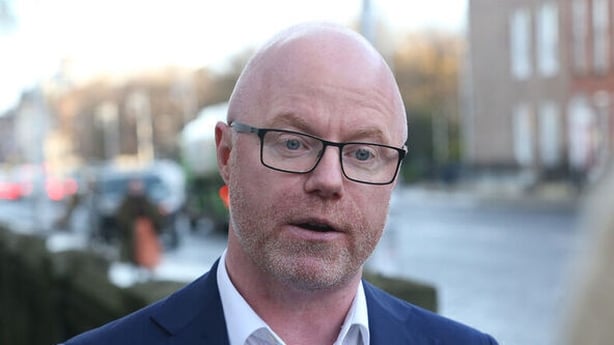
Mr Donnelly said that further controls around vaping were planned and that he was recommending to Cabinet that the age at which young people can buy tobacco products be raised from 18 to 21.
"Really it’s a measure aimed at people who are 15, 16, 17 years of age that with a smoking age at 18, they find it relatively easy to buy cigarettes... but that if you move to 21 it makes it much more difficult."
He said it would be a matter for Government to decide whether or not to move on that.
Asked about whether the smoking ban would be extended to outdoor public spaces, Mr Donnelly said it had formed part of the recent public consultation.
He said he hoped to see new legislation on this by the end of the year and said he believed it could be achieved by the current Government.
Mr Martin, who introduced the smoking ban as Minister for Health in 2004, said he introduced the ban to stop young people from starting smoking.
"At the time, we were very conscious of denormalising smoking. When I grew up, smoking was habitual. The tobacco industry worked on the premise of getting young people addicted from a very young age," he said.
We need your consent to load this comcast-player contentWe use comcast-player to manage extra content that can set cookies on your device and collect data about your activity. Please review their details and accept them to load the content.Manage Preferences
People reflect on 20 years of the smoking ban
He said the ban had been very impactful and that the results were very good, including that only 5% of children now smoked, down from 19% in 2004.
"The effort continues," he said, adding "in many respects the next battleground is the vapes."
The Irish Heart foundation described the ban as "one of the most important pieces of legislation" ever introduced.
Its Director of Advocacy and Patient Support, Chris Macey, said: "It is estimated that [the ban] saved more than 3,700 lives in Ireland in the first three-and-a-half years after its implementation – almost 2.7 lives a day - and resulted in an immediate 26% reduction in ischaemic heart disease and a 32% drop in strokes.
"As countries across the world followed suit, the lifesaving impact of the law is beyond measure."
Mr Macey warned, however, that two decades on, Ireland must pursue "bold and ambitious measures" on tobacco and vape control.
"Tobacco is still responsible for 4,500 deaths a year in Ireland, while an e-cigarette epidemic is responsible for driving nicotine addiction among young people.
"Smoking rates among teenagers are increasing for the first time in a generation, most likely due to the gateway effect from vaping."
Martina Blake, the HSE's lead for the Tobacco Free Ireland programme, said Ireland was considered a world leader in tobacco control at the time.
We need your consent to load this comcast-player contentWe use comcast-player to manage extra content that can set cookies on your device and collect data about your activity. Please review their details and accept them to load the content.Manage Preferences
Speaking on RTÉ’s News at One, Ms Blake said the ban had a "significant impact" in terms of reducing the number of smokers and protecting the health of employees in the workplace.
She said there "absolutely" is a need to move in the direction of a tobacco-free Ireland, but "we’re a long way off achieving that".
"We definitely have lots more to do in order to get to a tobacco-free Ireland and we would encourage ministers in our Government to think about new and progressive tobacco control policies and to try and move that agenda forward," she said.
A question on smoking tobacco products was included for the first time in an Irish census in 2022, and 974,145 people, 19% of the population, said they had given up smoking.
Read more:
What Ireland's smoking ban 20 years on shows us about human behaviour
